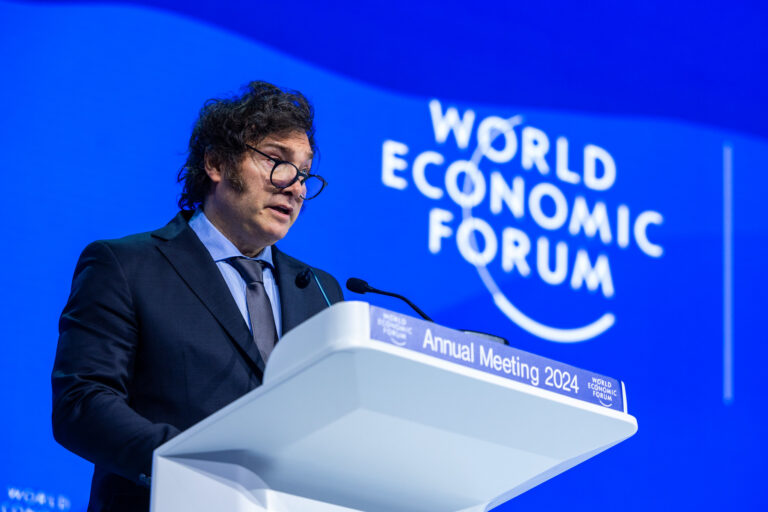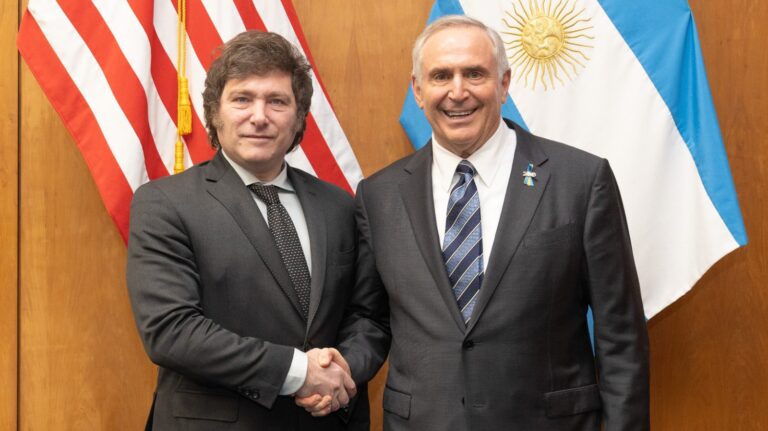July 22, 2002
Volume 4/ Number 17
Dear Colleague:
An independent congressional committee of the Peruvian government has charged that the U.N. Population Fund (UNFPA) supported the forced sterilization campaigns executed by former Peruvian dictator Alberto Fujimori. The report of the Peruvian congressional commission provides further evidence that claims circulating in the press that UNFPA supports only voluntary family planning in China and elsewhere are false.
Steve W. Mosher
President
Peru: UNFPA Supported Fujimori’s Forced Sterilization Campaigns
In “an exceptional case of national legislation,” the government of Peru in the early 1990s—under former dictator Alberto Fujimori—established the U.N. Population Fund (UNFPA) as the “Technical Secretary” of Fujimori’s infamous forced sterilization campaigns, states a report issued by a special commission of the Peruvian Congress.
Fujimori’s National Population Program consisted of the systematic and forced sterilization of over 100,000 women, during so-called “ligation festivals,” particularly aimed at rural women and minorities.
The report of the Peruvian congressional commission, called the Anticoncepcion Quirurgica Voluntaria, or AQV, Commission, notes that Fujimori’s coercive population control campaigns “presupposed an inverse relationship between population growth and economic growth. Based on this mistaken presupposition, [Fujimori’s] National Population Program established demographic strategies and methods explicitly restrictive and controlling; in this line, the United Nations Population Fund (UNFPA), known for its support of population control in developing countries, took charge. For that end, the United Nations Population Fund act[ed] as Technical Secretary, working in coordination with the National Population Council.”
“UNFPA increased their support and even participation in the task during the government of the ex-president Alberto Fujimori, especially in the period 1995-2000,” the report states.
The coercive sterilization campaigns “executed by the Peruvian government [under Fujimori] were induced and financed by international organizations, especially… the United Nations Population Fund (UNFPA),” states the report. The UNFPA, along with other international groups, “brought not only special financing but also demographic goals, for the focalized reduction of the Peruvian population and the fecundity of Peruvian women, especially the women of rural areas.”(1)
PRI first investigated UNFPA-supported forced sterilization campaigns in Peru in 1998, then again in 1999. Victims of forced sterilization testified that women in Peru are routinely treated like animals by family planning cadres, called “beasts” and “dogs” and forcibly sterilized. Based on this evidence, the U.S. Congress passed the Tiahrt Amendment, which prohibits U.S. funds from going to NGOs that support coercive contraception programs.
Under federal law, the President of the United States has discretion to defund any organization that supports coercive sterilization or abortion.
Despite this law (the Kemp-Kasten Amendment), President Clinton continued to fund UNFPA, providing over $100 million over the course of his administration.
At present, President George W. Bush has placed a hold on funding for UNFPA ($34 million for 2002) because of evidence that UNFPA supports forced abortion and other crimes in China. It has been widely reported that Bush has instructed the U.S. State Department to announce his decision to cut all funding for UNFPA. This decision is expected soon.
Unfortunately, UNFPA allies inside the State Department have leaked disinformation to the media in what appears to be an effort to undermine the intentions of the President.
Of course, UNFPA denies that it supports forced abortion and sterilization in China, Peru and elsewhere. In addition, major news outlets have reported that anonymous State Department sources have said that President Bush is ignoring evidence contained in a State Department report compiled by a State Department fact-finding team which investigated UNFPA programs in China last May. But at least one news agency reports that the State Department delegation found evidence of coercion in several counties, where UNFPA works together with the Chinese State Family Planning
Commission.(2)
Whatever the State Department report on UNFPA programs in China states, this much is true: PRI investigators sent to China last September were told by over two-dozen victims and witnesses of coercion in China that abuses of forced abortion were as bad today as ever in the history of China’s one-child policy. China’s latest national population law, effective September 1, 2002, calls for “unremitting efforts” for “upholding the one-child policy;” for “enshrining [the one-child policy] in a national economic and social development plan;” and proclaims that “The state shall employ a series of varied measures [forced abortion] to place population under control.”(3) In the face of UNFPA claims that China is reforming its coercive policy, even the BBC reports that China is expanding the range of its control to forcibly abort babies whose fathers are Taiwanese citizens.(4)
The recent AQV from Peru is just more evidence to undercut UNFPA’s claims that it supports only programs in which women are free to determine for themselves the timing and spacing of pregnancies.
UNFPA supports coercion–forced abortion and forced sterilization–in Peru as in China. They are not entitled to U.S. funding.
Endnotes
1. Subcomision Investigadora de Personas e Institutiones Involucradas en las Acciones de Anticoncepcion Quirurgica Voluntaria (AQV), Peruvian Congress, June 2002.
2. “Bush May Cut U.N. Program’s Funding,” By Juliet Eilperin and Dana Milbank, Washington Post, Saturday, June 29, 2002; Page A04
3. The PRC Law of Population, Xinhua, 12/29/01, Articles 1; 2; 9; 12, and 18.
4. “Taiwan and China in Abortion Row,” BBCNews, 18 July 2002.










